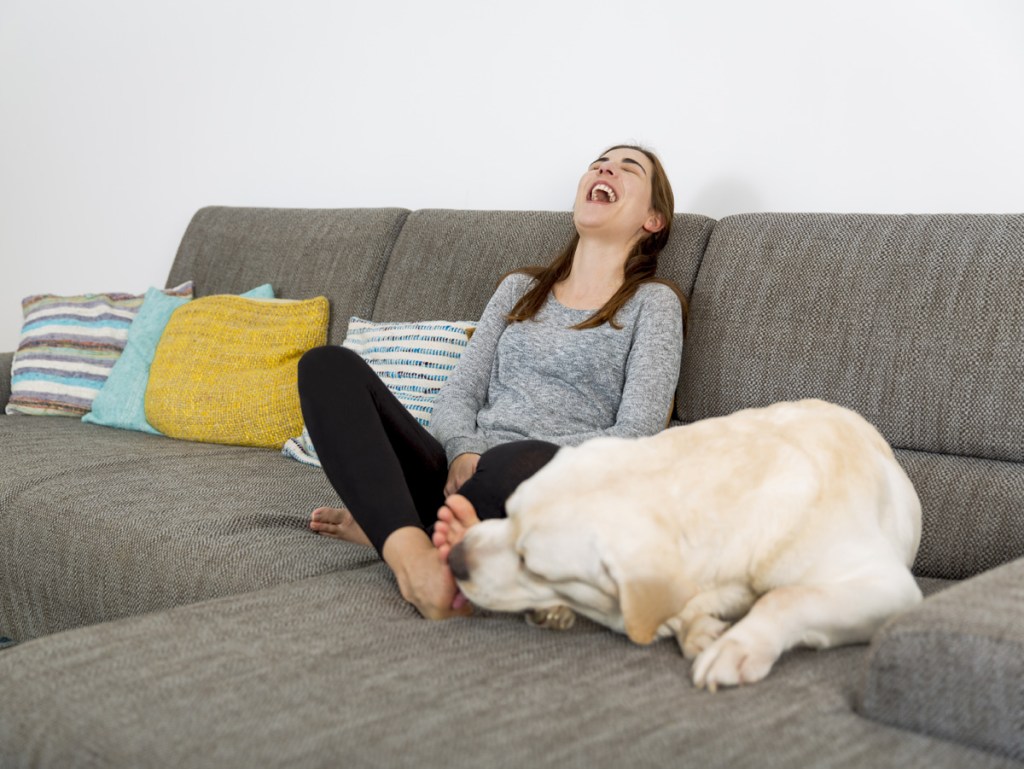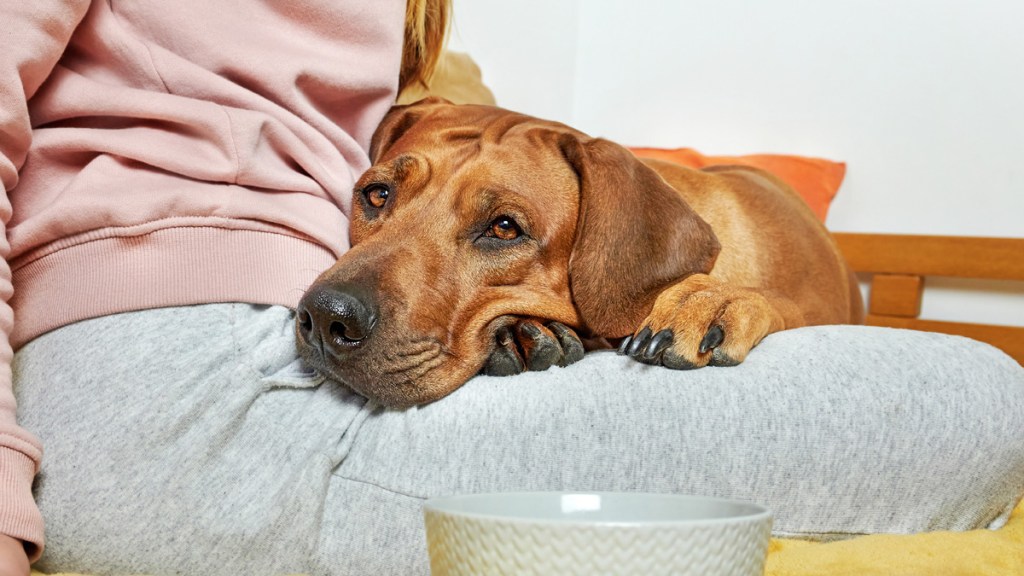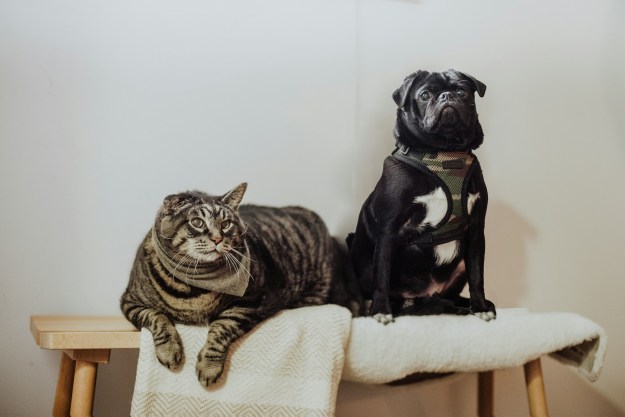If you live in a multi-dog household, you’re sure to have noticed that licking plays a big role in how your dogs interact. They might lick one another’s mouths, ears, eyes, or paws. According to behaviorists, licking is a nonverbal way for dogs to express their love, trust, caring, and submission within the pack. That pack of course extends to human family members. Dogs frequently show affection by licking human faces and hands, but why do dogs lick feet? Some pet parents find this endearing while those with especially ticklish toes discourage the behavior. Love it or hate it, you should consider yourself lucky if your dog licks your feet because it’s a mark of respect for you and your role within the pack.
In a Daily Dodo article, veterinarian Elizabeth Stelow of the UC Davis School of Veterinary Medicine says that dogs may also lick our feet as a way to engage in social maintenance behavior. “Like a friend giving you a face mask or braiding your hair, your dog is showing his love by caring for your skin and hair – the skin and hair on your feet, that is,” Stelow says.

Other reasons dogs might lick your feet
Dogs also lick to communicate and to understand their environment. They have an additional sensory organ called the Jacobson’s organ, which allows them to taste and smell at the same time, providing them with even more information. According to the American Kennel Club, sweaty stinky feet are full of biological information, such as pheromones making them an attractive target for dogs.
If your dog is obsessive about licking your feet it’s likely a combination of the sweaty salt taste and attention-seeking behavior according to veterinarian Gary Richter in a Readers Digest article. Typically pet parents react to feet licking by either laughing or yelling at their dog to stop. Whether positive or negative your dog is getting attention and so he will continue to lick your feet, says Richter.
What to do if you want to break the feet licking habit
If you want to discourage feet licking, you can simply get up and walk away. Richter also suggests redirecting your dog’s attention by offering a favorite treat or toy. You can use positive reinforcement when your dog stops licking to reward the wanted behavior. If your dog licks your feet obsessively and you can’t break the habit, it’s best to consult a veterinarian as there may be an underlying health issue.
Other sweet ways dogs show love and respect to owners
Bringing you a favorite toy
If your dog greets you at the door with a favorite toy in his mouth consider it an honor. In a Healthypets article, veterinarian Karen Becker says that when your dog brings you a favorite toy, it’s a sign of affection that reveals his love for you. According to Becker, if he drops the toy at your feet, “consider it a compliment and reward your dog with a smile, a scratch, and a game or two.”
Leaning on you
Most dogs enjoy social contact with people and while small dogs can have these needs met when being held, it’s more difficult for larger breeds. Many large dogs will lean their weight against their favorite people or might even sit on their feet as a way to show their affection.
Putting a paw on your lap
For some dogs just snuggling up beside their humans on the couch isn’t close enough. They like to extend a paw onto their person’s lap to show their love and devotion.
Playing follow the leader
Some dog breeds are more likely to follow their owners around than others. And those that were bred for centuries to work with people are more likely to be “Velcro dogs,” according to an article published by the Alliance of Therapy Dogs. One of the reasons dogs do this is simply because they enjoy the companionship of their favorite people.

Final thoughts on feet licking
There’s no doubt that we benefit greatly from a loving relationship with our four-legged friends. According to the Centers for Disease Control, there are many health benefits to sharing your life with a dog. For example dog walking provides us with physical exercise and a chance to socialize. Playing with pets can decrease blood pressure, cholesterol levels, and depression to name just a few benefits. So, next time you cuddle up next to your buddy, tell him you love him and thank him for being a part of your life.
Editors' Recommendations
- Why do dogs have whiskers? These small features play a huge role
- Dog body language decoded: This is why dogs pull their ears back
- The best oversized dog beds your pup will love
- Does your dog drink a lot of water? Here’s when you should be concerned
- Are Himalayan dog chews safe for your pet? Know this before you buy




